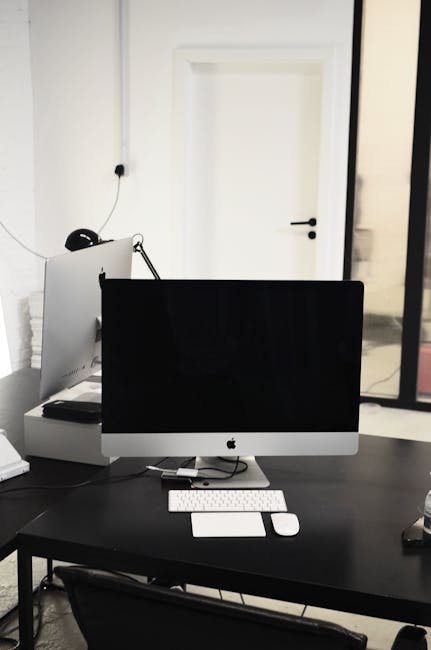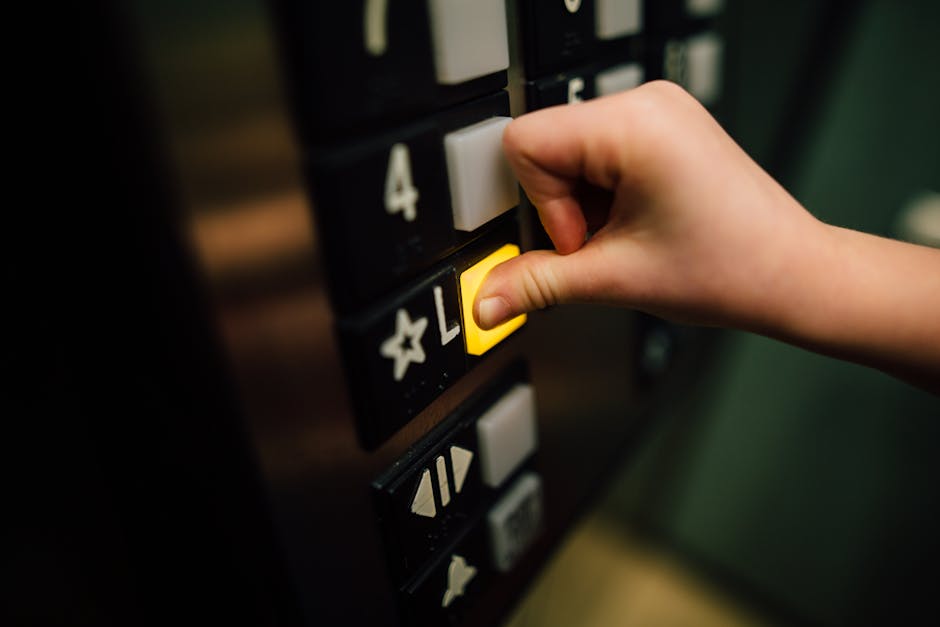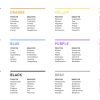
So you’ve finally decided to take the plunge and start your own business. Congrats! Now comes the fun part: crafting a logo that will scream “Look at me, I’m fabulous!” But let’s be real, pulling a logo out of thin air is easier said than done. You want something that stands out, represents your brand, and oh yeah, doesn’t make people cringe. No pressure, right? Well, fear not, dear entrepreneur. We’ve got some tips and tricks up our sleeves to help you craft a logo that will make your startup shine brighter than a disco ball at Studio 54. Design Elements”>
Design Elements”>
Choosing the Right Design Elements
When it comes to for your project, it can feel like trying to find a needle in a haystack. But fear not, my design-savvy friends, for I am here to guide you through the treacherous waters of aesthetics and creativity.
First and foremost, consider the overall vibe you want to convey. Are you going for a sleek and modern look, or perhaps a more whimsical and playful feel? Once you’ve nailed down the vibe, it’s time to think about color. Remember, color can make or break a design, so choose wisely. And don’t be afraid to go bold – nothing says “I’m confident in my design choices” like a pop of hot pink or a splash of electric blue!
Next up, let’s talk typography. Fonts are like the spice of design – they can add that extra bit of flavor that takes your project from bland to grand. Mix and match fonts to create visual interest, but be sure to keep it readable. You don’t want your audience squinting at their screens trying to decipher your cryptic messages.
And finally, don’t forget about imagery. A picture is worth a thousand words, so choose images that speak to your audience and enhance your overall design. Whether you opt for sleek photography or quirky illustrations, make sure your visuals are on point and in line with your project’s aesthetic. With these tips in mind, you’ll be well on your way to choosing the perfect design elements for your next project. Happy designing!
Understanding Your Brand‘s Identity
Have you ever looked in the mirror and thought, “Who am I really?” Well, your brand might be having an existential crisis too. No worries, though, we’re here to help your brand discover its true identity.
First things first, let’s talk about your brand’s values. What makes your brand tick? What gets your brand out of bed every morning (besides the promise of a fresh cup of coffee, of course)? Take some time to really think about what your brand stands for. Maybe it’s honesty, creativity, or just having a good time. Whatever it is, own it!
Next up, let’s talk about your brand’s personality. Is your brand a party animal, always ready to have a good time? Or maybe your brand is more of a sophisticated, classy type. Embrace your brand’s quirks and unique traits. Use that personality to connect with your audience and stand out from the crowd.
Lastly, let’s dive into your brand’s style. What colors, fonts, and design elements best represent your brand? Create a brand style guide to keep everything cohesive and on-brand. Consistency is key, my friends.
 Symbolism and Imagery“>
Symbolism and Imagery“>
Incorporating Symbolism and Imagery
Ever wonder why certain symbols and images keep popping up in your dreams? It’s like your subconscious is trying to tell you something, but in a really cryptic way. Well, fear not, because into your writing can add depth and meaning to your work. Plus, it’s a great way to impress all your literary friends at your next cocktail party.
Think of symbolism as the secret code language of literature. It’s like a hidden message that only the most astute readers can decipher. Want to convey a sense of hopelessness? Throw in a black cat crossing the protagonist’s path. Want to show the fragility of life? Describe a wilting flower in exquisite detail. The possibilities are endless!
And let’s not forget about imagery. This is like the visual feast for your readers’ minds. Instead of just saying ”the sun was setting,” paint a vivid picture with words: “the fiery orb dipped below the horizon, casting long shadows across the barren landscape.” See the difference? It’s all about creating a sensory experience that will transport your readers to another world.
So, whether you’re writing a heart-wrenching love story or a pulse-pounding thriller, don’t be afraid to sprinkle in some symbolism and imagery. It’s like seasoning for your writing – just a pinch here and there can take your work from bland to gourmet. So go forth, dear writer, and unleash the power of symbolism and imagery in your storytelling!
 Color Palette“>
Color Palette“>
Creating a Memorable Color Palette
Are you tired of your designs being forgettable and bland? It’s time to spice things up with a memorable color palette! Here are some tips and tricks to help you create eye-catching designs that will leave a lasting impression:
First things first, think about the mood you want to convey with your color palette. Are you going for a vibrant and energetic look, or something more calm and soothing? Whatever your goal, make sure your colors reflect that vibe.
Next, don’t be afraid to get a little wild with your color choices. Mix and match unexpected hues to create a truly unique palette that will grab everyone’s attention. Remember, there are no rules when it comes to color – so don’t be afraid to think outside the box!
Lastly, don’t forget to test out your color palette on different backgrounds and in various lighting conditions. You want to make sure your colors look just as good in real life as they do on your computer screen. And most importantly, have fun with it! should be an enjoyable and creative process, so don’t stress too much about getting it perfect.

Ensuring Scalability and Versatility
When it comes to , it’s important to think like a chameleon – adaptable and ready to change colors at a moment’s notice. Just like a chameleon blends into its environment, your systems should be able to seamlessly scale up or down depending on the situation.
One way to achieve this is by utilizing cloud computing. By harnessing the power of the cloud, you can easily expand or contract your computing resources as needed. It’s like having your own personal genie, ready to grant your wishes for more storage or processing power at a moment’s notice.
Another key aspect of scalability and versatility is modularity. By breaking down your systems into smaller, more manageable components, you can easily swap out or upgrade different parts without disrupting the entire operation. It’s like playing with Legos – if one piece doesn’t fit, just swap it out for a better one!
And last but not least, automation is your best friend when it comes to scalability and versatility. By automating repetitive tasks, you can free up your time and focus on more important things, like coming up with new and innovative ways to scale and adapt your systems. It’s like having a personal assistant, but without the annoying phone calls and coffee runs.
Seeking Professional Assistance if Needed
So, you’ve realized that you might need a little extra help to get through this crazy thing called life. Don’t worry, seeking professional assistance is totally normal (even celebrities have therapists, probably). Here are a few types of professionals you can turn to when you need a helping hand:
- Therapist: Sometimes talking to a neutral third party is just what the doctor ordered. Plus, therapists have comfy couches and tissues on hand for when you inevitably start ugly crying.
- Life Coach: Need some motivation to reach your goals and live your best life? A life coach is basically like your own personal cheerleader, but with better advice than “rah rah sis boom bah.”
- Psychiatrist: When your brain is feeling more scrambled than an egg at a breakfast buffet, a psychiatrist can help with medication management and other mental health concerns.
Remember, seeking professional help doesn’t mean there’s anything wrong with you. It just means you’re brave enough to admit when you need a little extra support. So go ahead, make that appointment and give yourself a pat on the back for taking care of your mental health. You deserve it!
FAQs
Why is having a unique logo important for a startup?
Having a unique logo sets your startup apart from the competition. You don’t want to be mistaken for the local pizza place down the street.
How can I come up with a unique concept for my logo?
Take a look at your startup’s mission, values, and target audience. Then, throw all of that out the window and brainstorm something totally wacky and unexpected.
What are some common mistakes to avoid when designing a logo?
Avoid using clip art or stock images – unless you want to be mistaken for a PowerPoint presentation from 2005.
Should I hire a professional designer or try to create a logo myself?
Well, do you want your logo to look like a 5-year-old drew it with crayons? If not, then it might be worth investing in a professional designer.
How can I make sure my logo resonates with my target audience?
Have a focus group of your target audience take a look at your logo. If they don’t immediately burst into tears of joy, then you might need to rethink your design.
The Final Touch: Make it Unforgettable!
So there you have it, folks. Your logo is the face of your startup, the first impression you give to potential customers. So why settle for something ordinary when you can go for extraordinary? Get those creative juices flowing, think outside the box, and craft a logo that’s as unique as your startup itself. Who knows, maybe one day your logo will be as iconic as the Starbucks mermaid or the Nike swoosh. So go forth, my fellow entrepreneurs, and make your mark on the world with a truly unforgettable logo!












